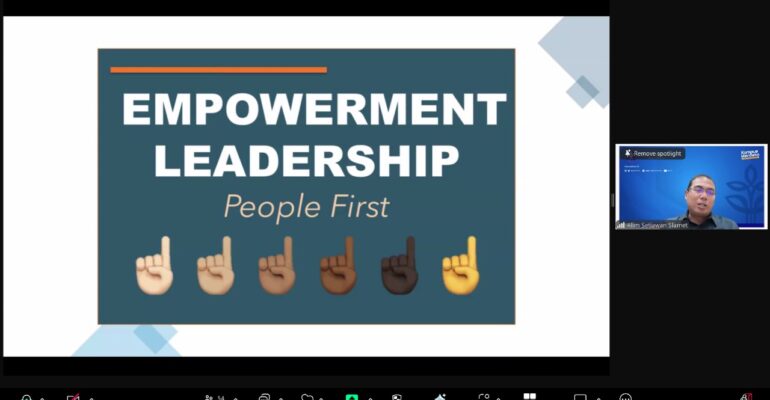Improving Leadership Capacity, DPMA IPB University and YBM BRILiaN Hold Community Facilitator Training

The Directorate of Agromaritime Community Development (DPMA) IPB University collaborated with the Baitul Maal Foundation (YBM) BRILiaN to organize a Community Facilitator Capacity Building Training, in early January.
This activity was attended by 52 YBM BRIlian facilitators, also presenting Dr Alim Setiawan Slamet, Vice Rector of IPB University for Resource Resilience and Infrastructure.
As a resource person, Dr Alim presented the material “Self Development and Leadership Skills.” The material highlighted the four main pillars of emotional intelligence, including self-awareness, social awareness, self-management, and relationship management.
In addition, Dr Alim also explained the concept of leadership using the LEADERS principle. These principles include the ability to listen empathetically, empower teams, adapt to change, make effective decisions, be actively involved, have resilience in the face of challenges, and serve sincerely.
During the session, Dr Alim emphasized the importance of team empowerment as the key to successful leadership. “An effective leader is able to encourage and empower the team to contribute actively in every activity, build a sense of responsibility, and create an environment that supports mutual growth,” he said.
One of the interesting moments in this event occurred during the question and answer session. Wira, one of the participants, asked a question related to the effectiveness in changing people’s mindset, whether it is better done through regulations or personal approach.
Responding to the question, Dr Alim explained that building a positive mindset needs to be done through in-depth discussions and open communication.
“For the first two years, I implemented in-depth discussions with the community, talking from heart to heart. We must slowly enter and change the mindset with all the limitations that exist,” he explained.
After the main session, the activity continued with breakout room sessions divided into four areas, namely micro, small and medium enterprises (MSMEs); agriculture; fisheries; and livestock. In this session, the facilitators shared their concerns regarding the challenges they faced in assisting the community.
The DPMA team was also present in each breakout room to listen actively and provide constructive suggestions and solutions according to the problems faced in each field.
This activity ended with the conclusion that effective leadership requires a combination of emotional intelligence, team empowerment, and resilience in facing challenges. With this training, it is hoped that the facilitators can apply the principles learned in assisting the community optimally. (IAAS/RUM)



